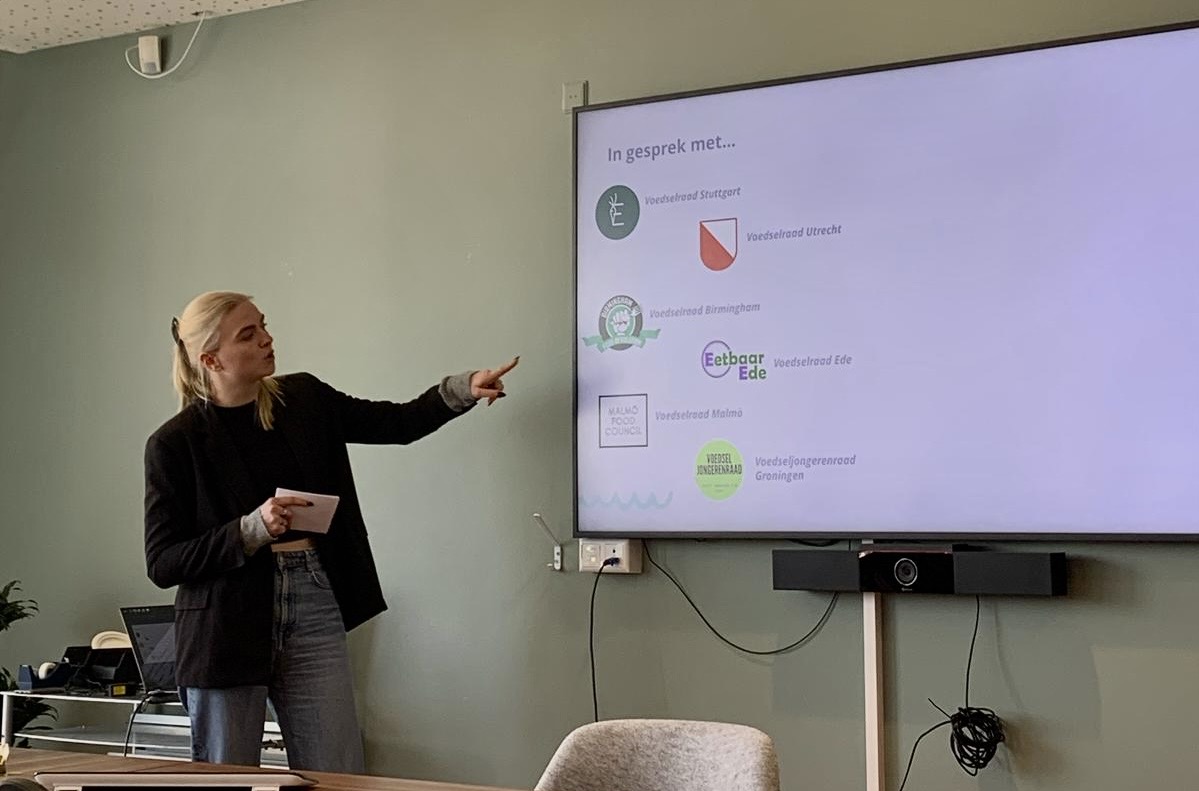We spoke with Berber Snippe, who recently completed an internship with the Speak Up project at the municipality of Groningen. Her work focused on researching how food councils function, and how Groningen could found one. In this interview, we discuss her main findings and the transnationality of successful cooperations between citizens and government on small initiatives.
Can you tell us something about yourself and your research?
My name is Berber Snippe and I am a student at the University of Groningen. Here I study my master’s in International Relations and International Organisations. Through my studies, I connected with Speak Up and thought it was an interesting project to intern for. Together with the municipality of Groningen, we came to the topic of food councils. My research question was ‘How can Groningen take the first steps toward introducing a Food council?’. Through the Speak Up partnership I was able to get in touch with professionals working in the field of citizen engagement and food, and had the possibility to interview people from different parts of Europe. And although the contexts may be different, many success factors were similar.
How can food councils make a difference?
Food councils are initiatives that connect (groups of) citizens, organisations and the government together to work on the future of food. It ensures that when it comes to shaping policy around food, not only the government and the food industry dominate and share their view. Food is something that affects everyone every day, and therefore it is important that everyone who wants to can be involved to get a diverse group of people together. Food councils can give insightful perspectives in creating healthier, sustainable, and more local food sources. Besides that, such councils enhance community support and stimulate democratic engagement.
What are the key takeaways from your research?
Through the interviews and desk research I focused on how one can take the first successful steps towards a food council. The number one condition is to secure funding, and to secure funding for a longer period of time. Food councils that were not financially supported usually quickly dissolved. Besides that, it is super important to have a strong network, also beyond the public domain. Often you don’t have to start at zero, as there are usually already some connections and networks present in your area, so make sure to tap into those. A strong network increases visibility and the impact that a food council can have. Another key point is consistent communication; this ensures visibility, accessibility and investment from participants and stakeholders. But my biggest advice would be: do not overthink starting a food council, just say that you are one!
What did you learn from the international partners?
The Speak Up network was very helpful and very open in sharing their best practices. They offered clear examples of what went well, and what could have been done better. Although the context of how each food council was founded and now operating was quite different, they all had a lot of similarities that made them work. In addition to that, it was inspiring to see that people were very happy to take part in such initiatives and were enthusiastic about building something better together.

